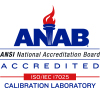 Posted on
Posted on 
In the food industry, ensuring the safety and quality of products is paramount. The Hazard Analysis and Critical Control Points (HACCP) system is a proactive approach to food safety that identifies potential hazards and implements critical control points to prevent risks. A crucial aspect of successful HACCP plans lies in the effective use of data loggers, which play a significant role in monitoring and documenting critical data throughout the food production process.
Why HACCP Plans Matter
HACCP plans are essential for businesses in the food industry to uphold the highest standards of safety and quality. By identifying potential hazards and critical control points, these plans help prevent foodborne illnesses, ensure regulatory compliance, and safeguard consumer trust. Maintaining comprehensive and accurate records of monitoring and control procedures is vital to demonstrate compliance during inspections and audits.
The Role of Data Loggers in HACCP Plans
Data loggers are invaluable tools that enhance the effectiveness of HACCP plans. These compact devices are equipped with sensors to monitor parameters such as temperature, humidity, pressure, and more. Throughout the food production and distribution process, data loggers continuously track and log critical data. The information collected allows businesses to make informed decisions and take timely corrective actions to ensure food safety.
Key Applications of Data Loggers in Food Safety
1. Temperature and Humidity Monitoring: Data loggers ensure that food products are stored and transported under optimal conditions to prevent spoilage and bacterial growth.
2. Cooking and Cooling Processes: Data loggers monitor cooking and cooling to ensure that food reaches safe internal temperatures, reducing the risk of foodborne illnesses.
3. Storage and Transportation: Continuous monitoring during storage and transportation helps identify any deviations from safe parameters, enabling swift corrective actions.
4. Record-Keeping and Compliance: Data loggers provide accurate, time-stamped data, facilitating reliable record-keeping to demonstrate regulatory compliance during inspections.
5. Quality Control and Process Improvement: Data analysis with data loggers helps businesses identify trends and potential issues, leading to continuous improvement and consistent product quality.
Download Our Comprehensive HACCP Guide
Implementing HACCP plans with data loggers is crucial for any food industry business aiming to ensure food safety, regulatory compliance, and consumer confidence. To gain a deeper understanding of how data loggers can optimize your HACCP plan and enhance food safety, we invite you to download our comprehensive HACCP guide. Discover practical tips, best practices, and real-life case studies that will empower your business to maintain the highest level of food safety standards.
Food safety is of utmost importance in the food industry, and HACCP plans are key to achieving this goal. Data loggers play a pivotal role in the success of HACCP plans by providing accurate and real-time monitoring of critical parameters. From temperature and humidity control to cooking, cooling, storage, and transportation, data loggers offer valuable insights for businesses to uphold the highest standards of food safety. Embrace the power of data loggers and download our HACCP guide today to strengthen your food safety program and protect your consumers with confidence.






